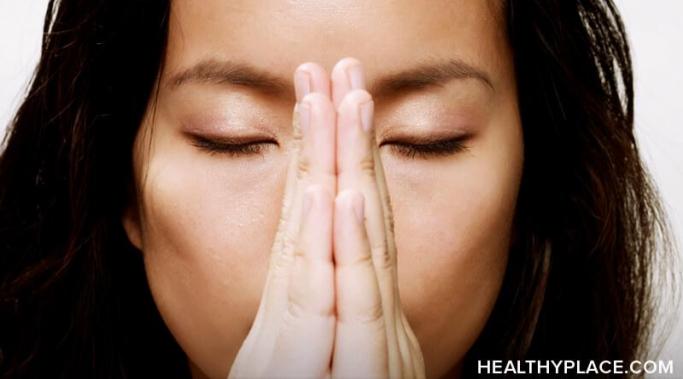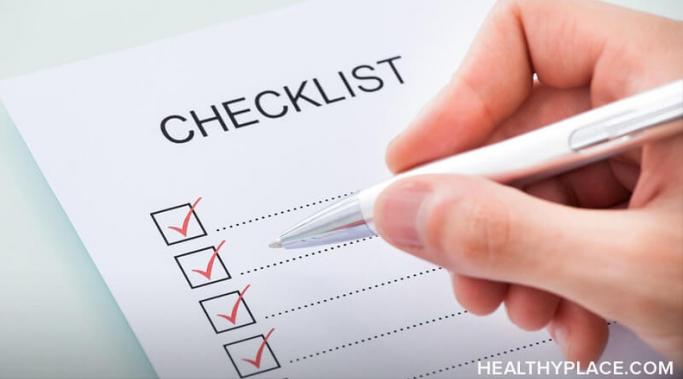Blogs
Everyone with anxiety certainly has some things they have or do to keep their anxiety under control. Inevitably, some of them will strike outsiders as odd or different, but if they help, I say more power to them.
I have used many coping mechanisms to help with eating disorder recovery, but one that I find particularly essential is a self-care toolkit for the holidays. I co-opted this idea back in high school from a teacher I was close to, and 10 years later, I still consider it beneficial. No matter where you are in eating disorder recovery, this season is often a mental and emotional battleground, so the importance of reliable coping mechanisms cannot be over-emphasized. Therefore, I want to discuss why I think a self-care toolkit is essential for the holidays—and how to create one yourself.
You must be courageous when parenting a child with mental illness. After all, if being the parent of a child with mental illness were easy, then there wouldn't be a blog dedicated to the topic. Life with Bob wouldn't exist. That's why I'm not afraid to admit that raising a child with mental illness takes more courage than any calling I've ever had--sometimes more than I have stored up. (At least, that's how it feels.) Evidently, though, I do have what it takes, and you probably do, too. So why does parenting a child with mental illness feel so scary sometimes, and where does all this parenting courage come from?
Health boundaries, including mental health boundaries, can save your sanity or even your life, especially in the times of COVID-19. Setting health boundaries with those we love -- especially over the holidays -- can be very difficult, but is also so very important. Read on to learn about how to set your own personal health boundaries.
We are now in the holiday season, and even though things look a little different than they typically would around this time, remember that you can overcome anxiety with gratefulness. I know that anxiety is something many of us can't seem to avoid. We may even find that we are experiencing more anxiety than usual.
It's December, and it's the perfect time to plan for the next year by setting resolutions to help you reach all your goals, including building self-esteem. I made my living as a project planner, and today, I want to share my process for looking ahead at the changes I want to make and creating clear and realistic New Year resolutions that can help in the journey to stronger self-esteem.
I've spent some time this week, reflecting on various lessons I've learned from my brother since he became mentally unwell with anxiety and depression. So often in our relationship, I've taken on the role of "teacher" -- as is natural for a bossy older sibling. However, over the last seven years, I have gained a lot from observing how my brother lives with mental illness. I'd like to unpack that a little bit today.
I have identified as a lesbian for as long as I have battled anxiety. I came out to my family and friends 13 years ago, unaware that my sexual orientation would be one of the biggest triggers of my anxiety symptoms. Those in the lesbian, gay, bisexual, transgender, queer, intersex, asexual, etc. (LGBTQIA+) community who also have a mental illness face many obstacles regarding public treatment. The constant worry of judgment and non-acceptance when out in public can lead to heightened anxiety. Holding on to what we can control and educating others about our community can help calm this worry.
I’m Alixzandria Paige, and I’m so excited to join HealthyPlace. I grew up in a big family, and unfortunately, many of my family members have a mental illness. While it has been challenging, my family with mental illnesses have all gotten so much better over time. As for me, I have a psychology degree and use my degree experience to help myself and others overcome mental health issues so that we may live the lives that we deserve.
It is often said that relationships are a two-way street — that you get out what you put in. So how do you maintain relationships (platonic, romantic, or familial) when your mental health interferes with your ability to support others? How do you maintain relationships when you are so preoccupied with your thoughts and ruminations that it doesn't even occur to you to check in on the people closest to you? Sure, the odd blip can be forgiven, but in the case of chronic, long-term depression, how do you manage to convince other people to stick around? How do you tell them that you're not selfish, just suffering?









